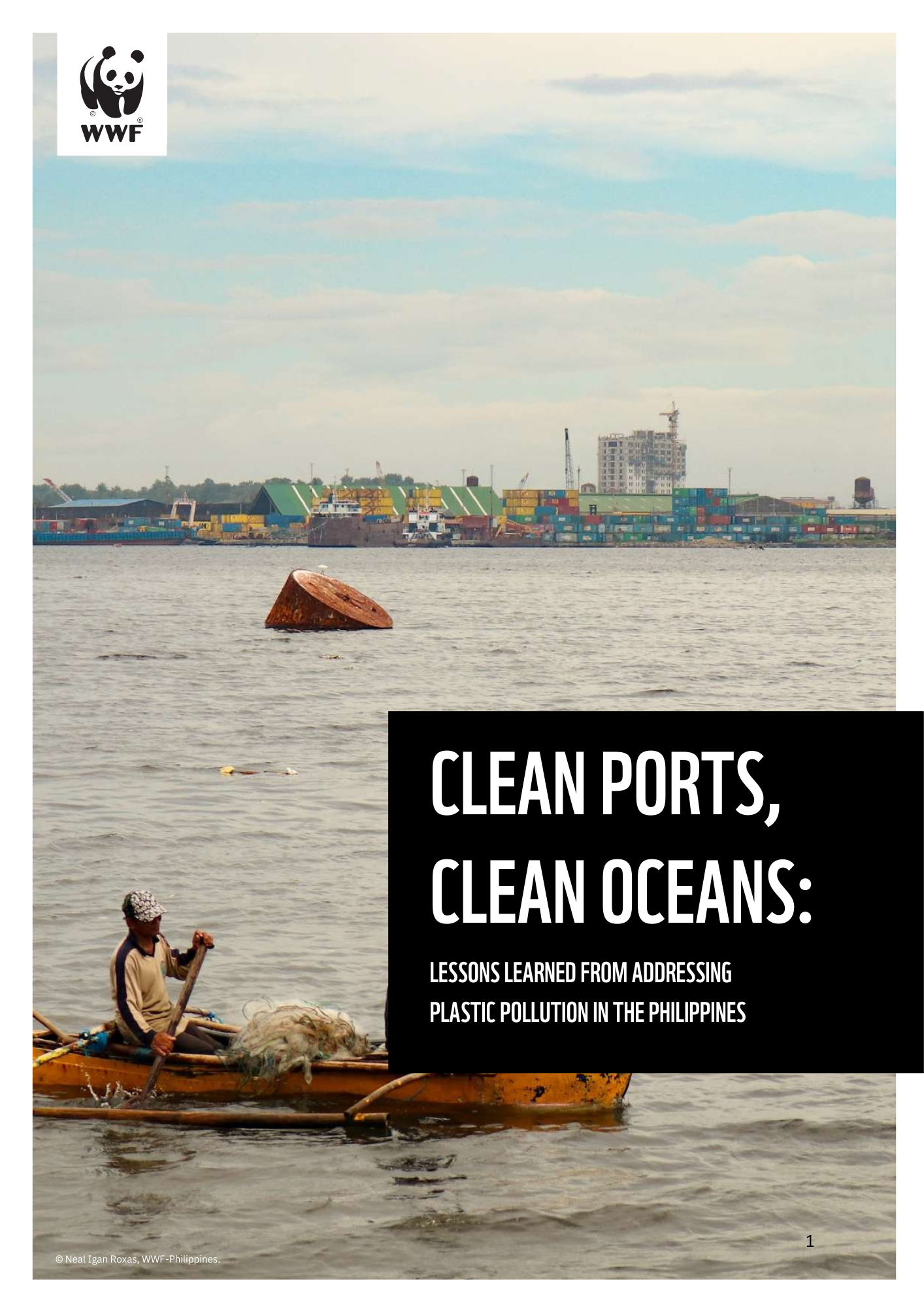Plastic pollution is one of the fastest-growing global environmental problems. It is generally estimated that 80% of marine plastic litter comes from land-based activities and 20% from sea-based activities, such as fishing, aquaculture and shipping.
The maritime sector is an essential part of global trade and the economy and includes activities at sea but also at the interface between sea and land, which represents some of the key sources of plastic pollution. Despite the threats to the marine environment posed by the maritime sector, the industry has the opportunity to be at the forefront of finding solutions to the plastic pollution crisis.

From 2020 to 2023, WWF has implemented the ‘Clean Ports, Clean Oceans: Improving Port Waste Management in the Philippines’ project in port cities. The main objective of this report is to share the lessons learned from implementation of the project, and particularly the solutions piloted to address plastic pollution in the maritime industry and communities, with anyone seeking to reduce plastic pollution.
More about WWF-Philippines work, visit: https://www.wwf.org.ph/our_work/consumption/
Related posts

Three major Philippine ports achieve 50% reduction of plastic waste leakage

How the Port of Batangas in the Philippines walks the talk to tackle plastic pollution



